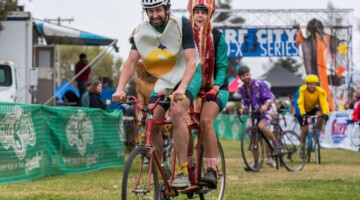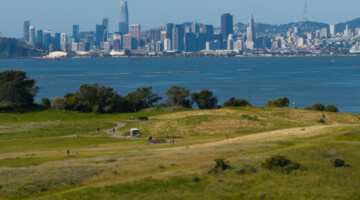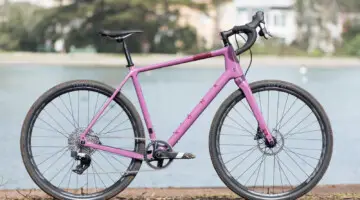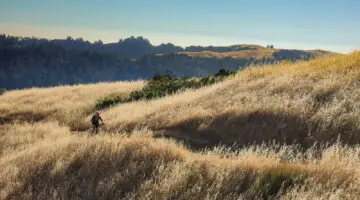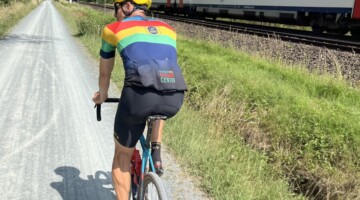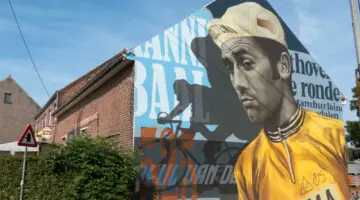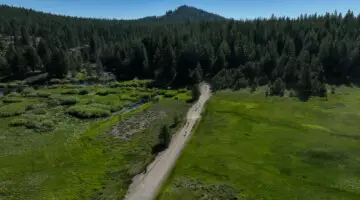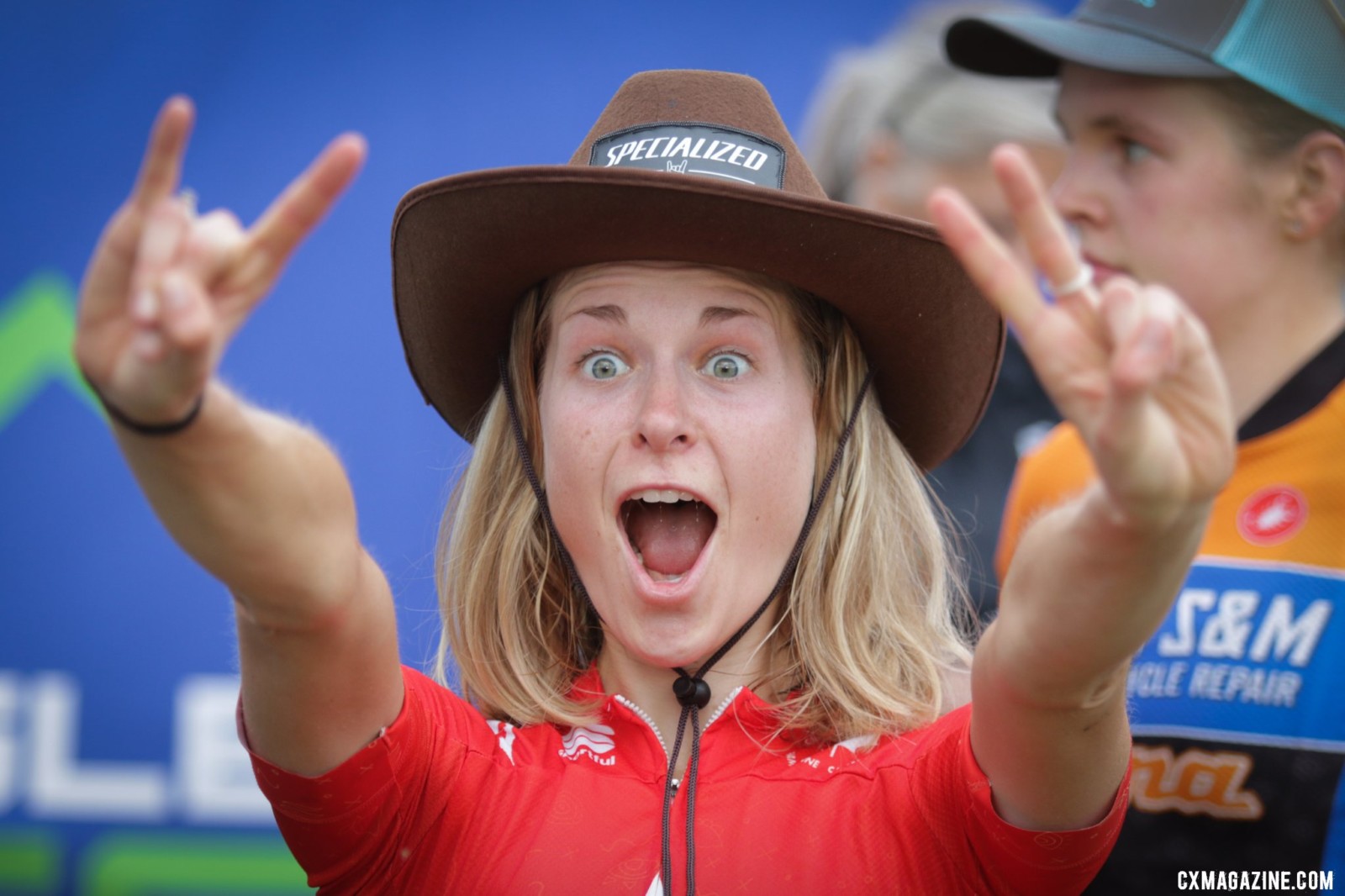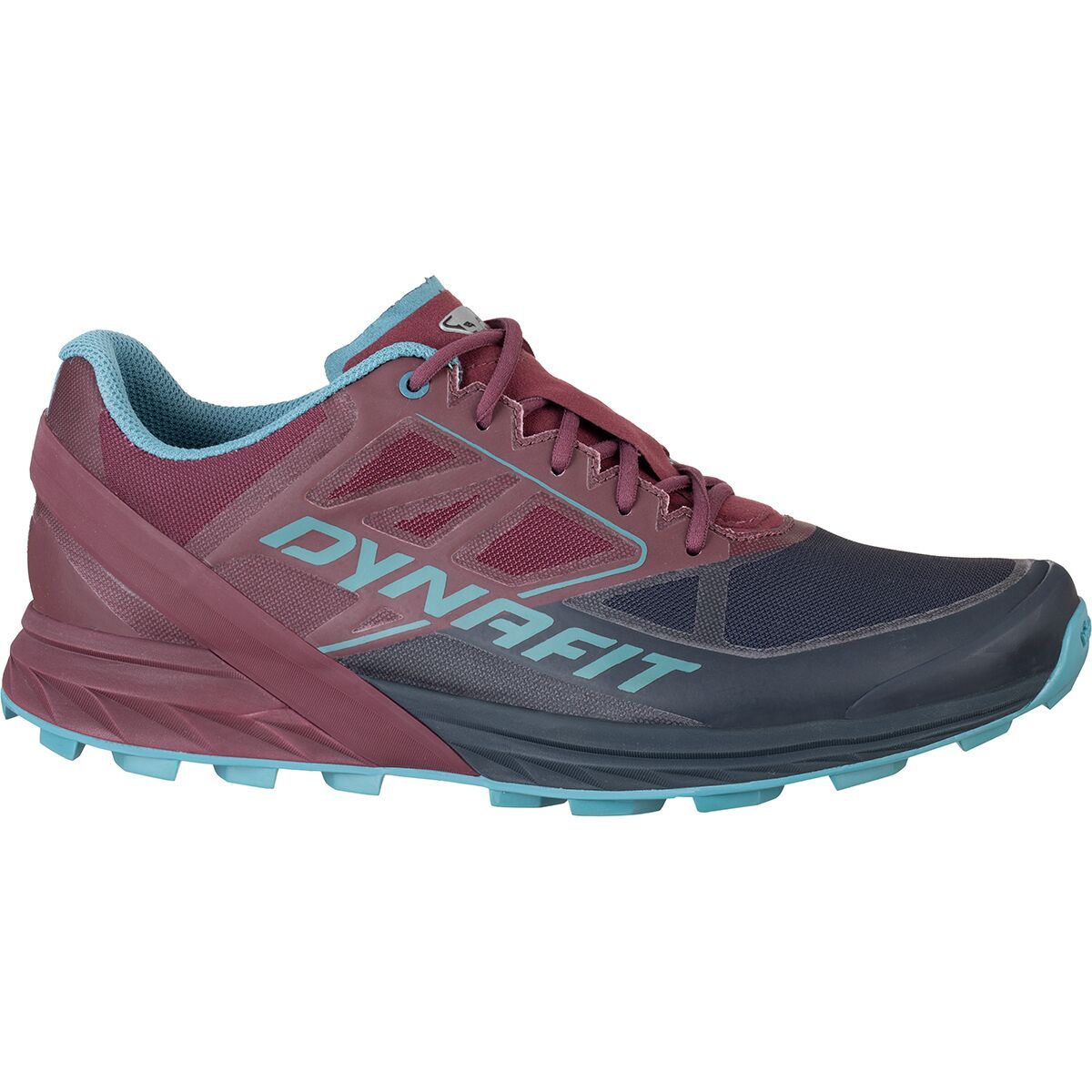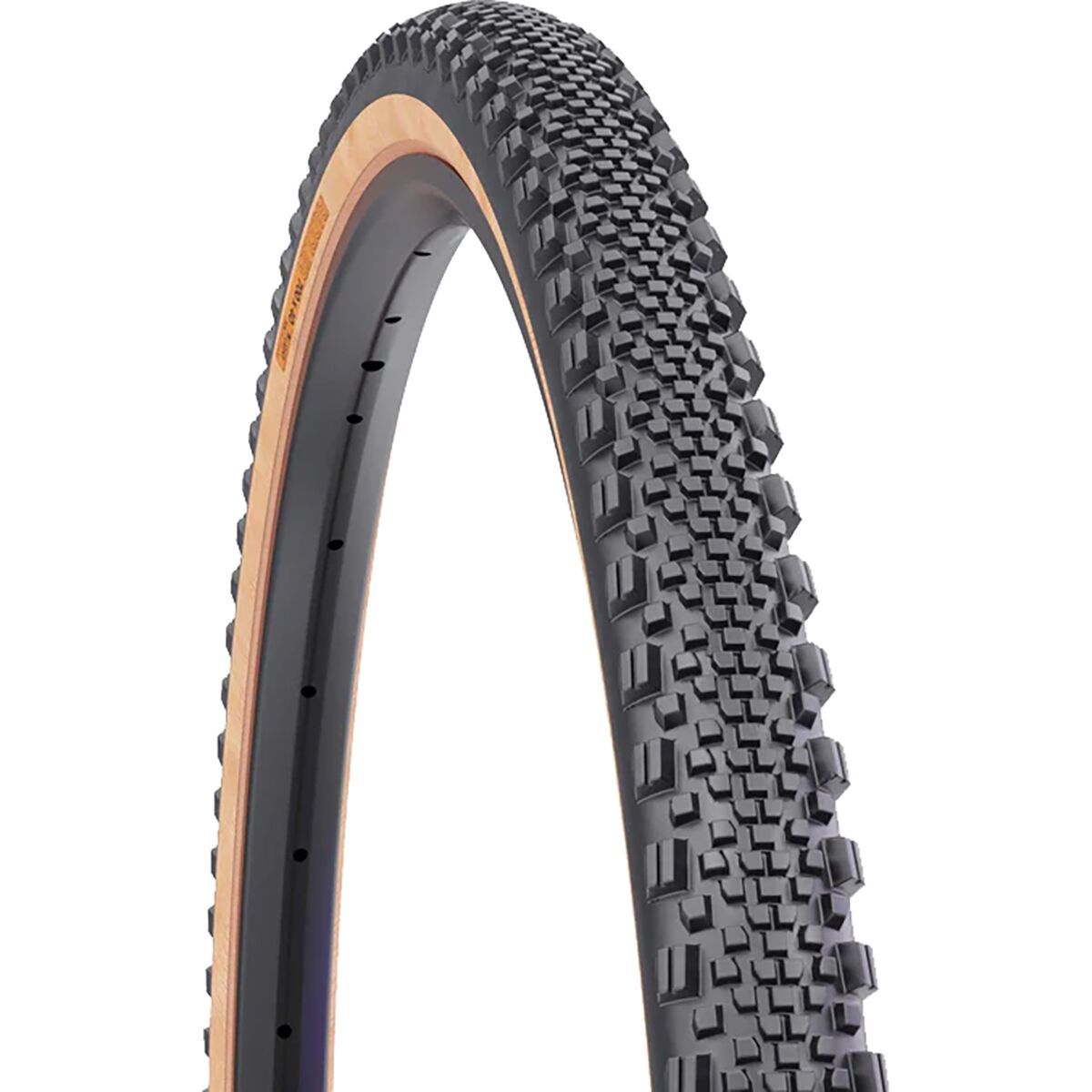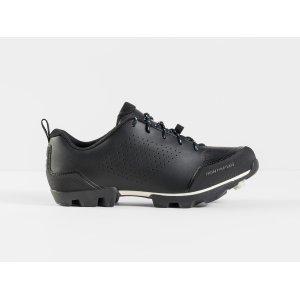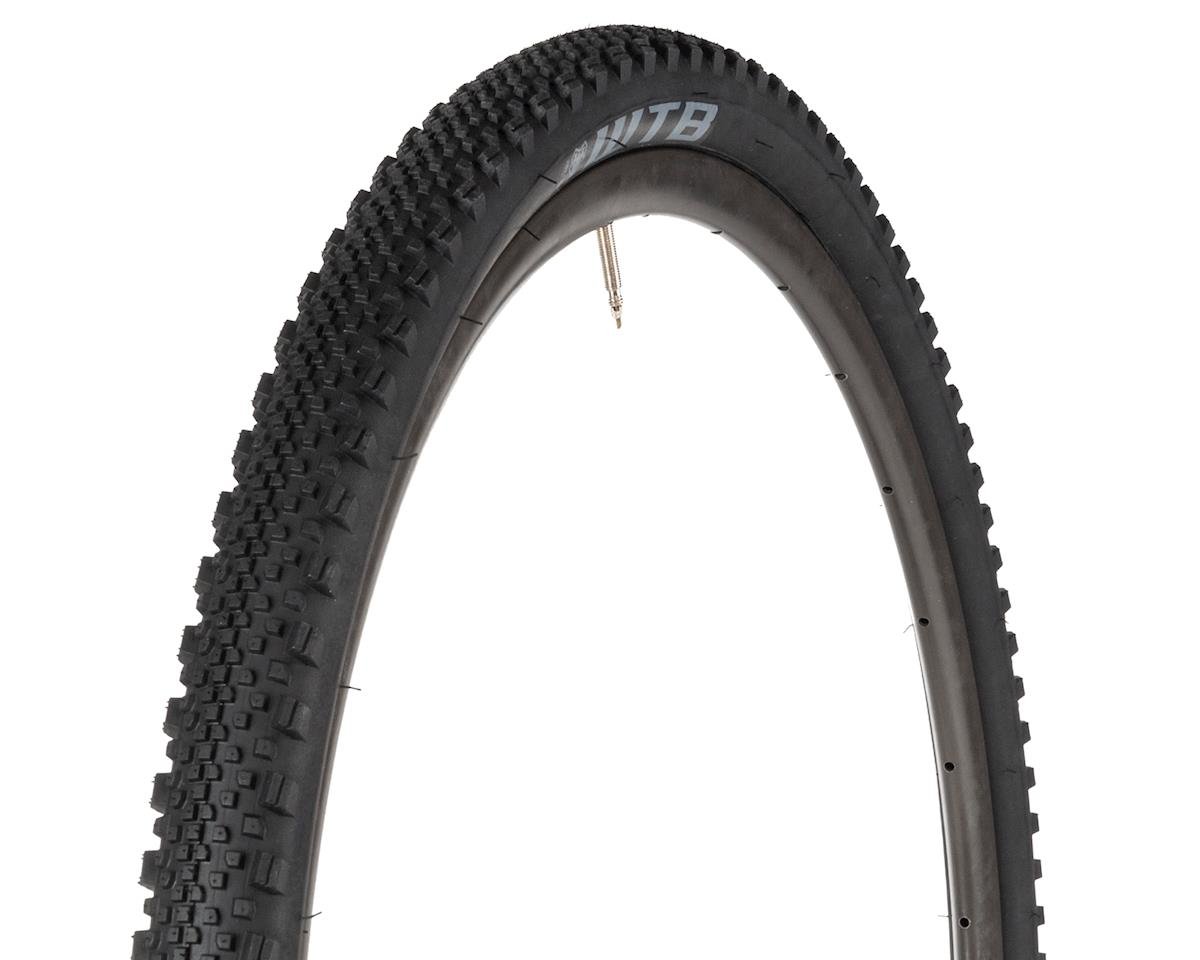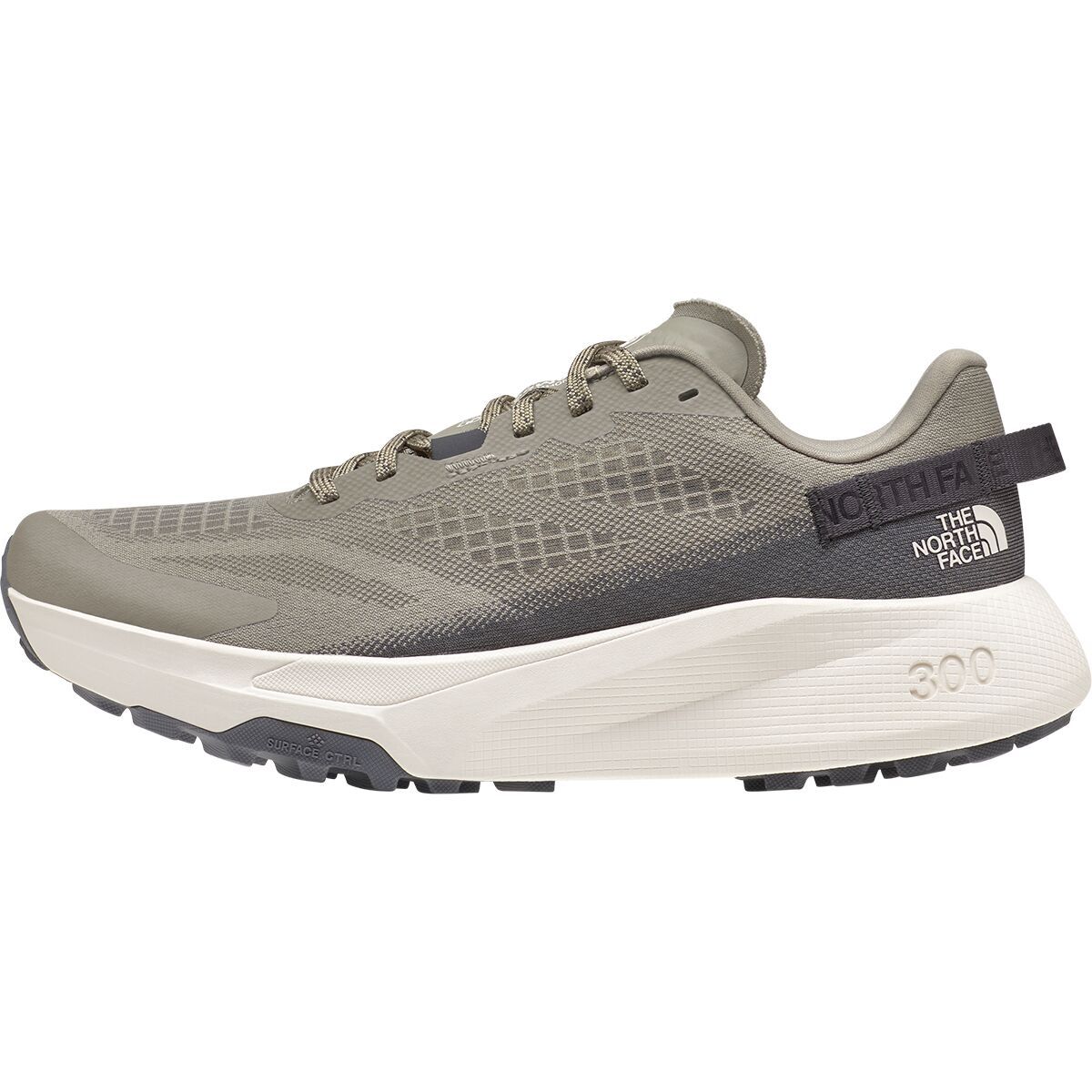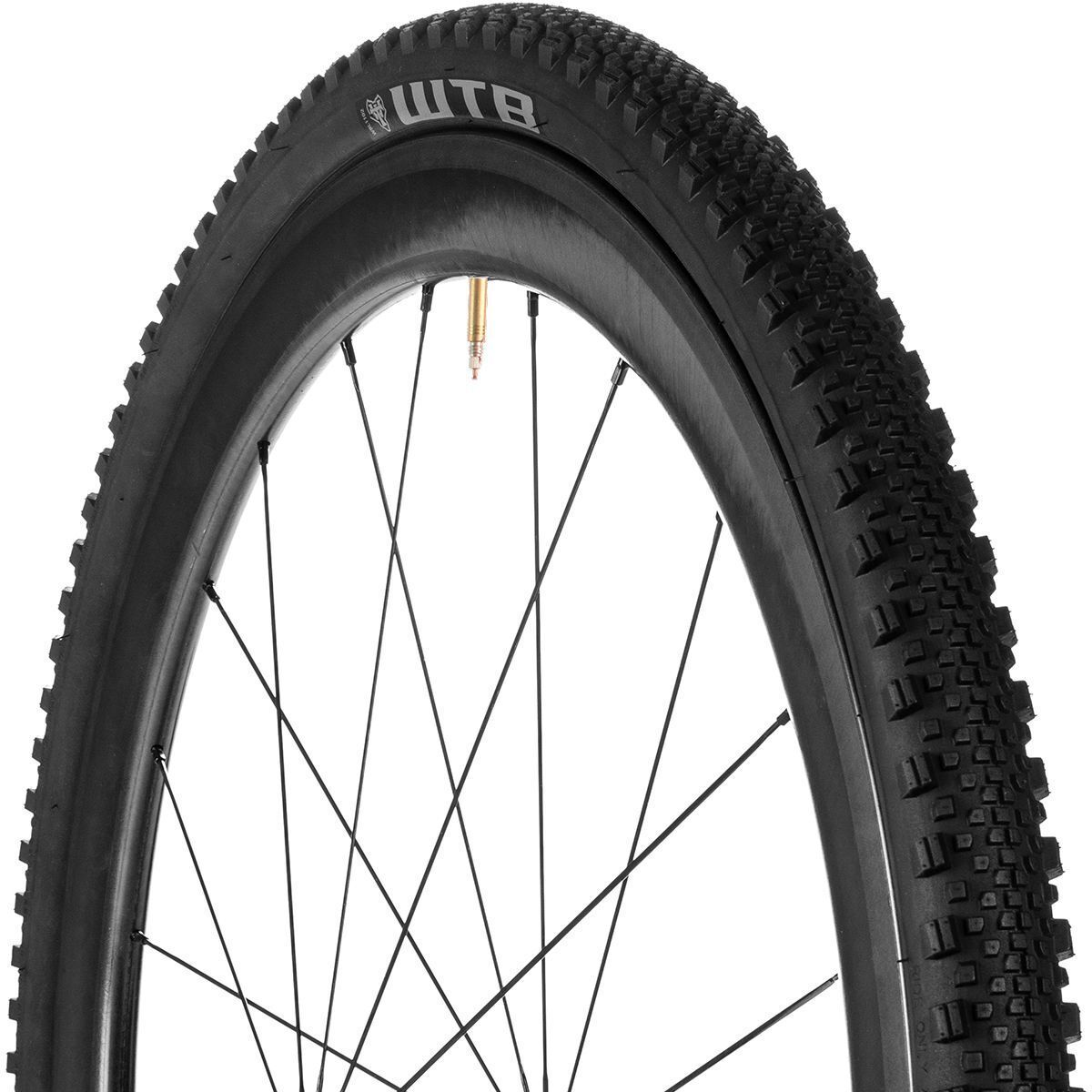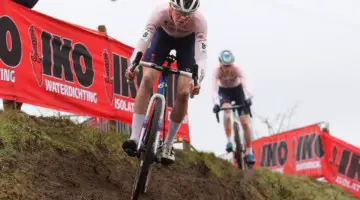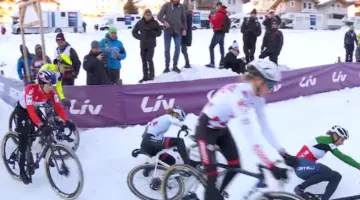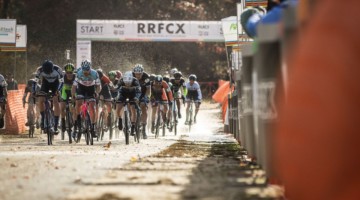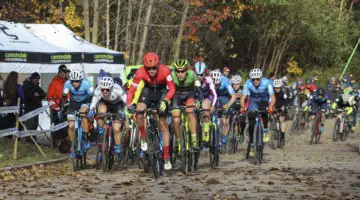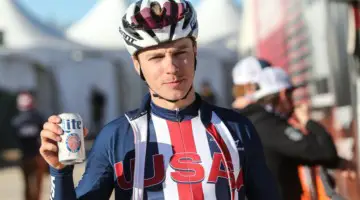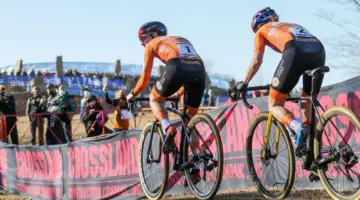This month, coach Corey Coogan Cisek goes north of the border to catch up with the 2019 Jingle Cross World Cup winner Maghalie Rochette. Like all of us, she’s been coping with changes in plans and cancellations all spring and summer. Her “best guess” is that her international season will start in late October, so she is patiently progressing her fitness towards this target.
This is Part 1. Stay tuned for Part 2.
Spring Training in Tucson, or Not
Maghalie Rochette’s training season began with a 35-hour road trip.
Given the extended winter in Rochette’s hometown of Ste-Adèle, Quebec, she does her winter and early spring training in Tucson, Arizona. Her family has a home in Tucson and she used it as a home base during winter 2020 when she split her time between Arizona and Europe.
After Cyclocross Worlds, Rochette returned home to Quebec for an extended break. During this time, she stayed active, skiing and such, but did not do anything she would consider to be “training” and “record in Training Peaks.”
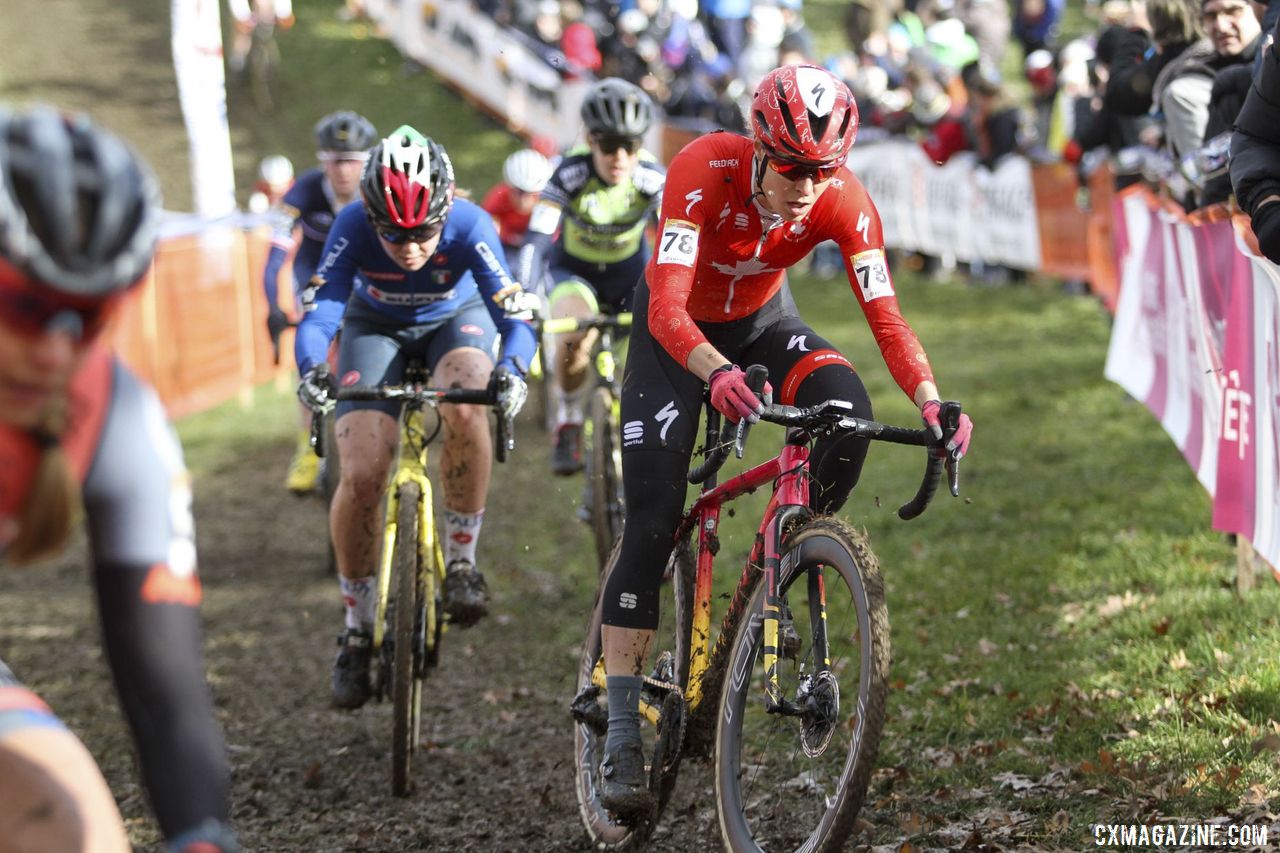
Maghalie Rochette is enjoying the offseason. photo: she just outside the top 10 in 11th at the 2020 World Cup Nommay, France. © B. Hazen / Cyclocross Magazine
On March 12, Rochette and her partner/coach David Gagnon flew to Tucson to begin her spring training. March is Rochette’s customary start month, as she prepares to race gravel and mountain bike in the spring. They left Canada at 5:00 am. In Rochette’s words, everything was “mostly normal” when they left.
As Rochette and Gagnon settled in Tucson that evening, President Trump came on the news to announce the European travel ban. The next day the borders between Canada and the U.S. closed. At first, Rochette and Gagnon thought they would stay in Tucson given the weather and great training, but then their insurance agent called indicating their insurance would be revoked if they stayed. Accordingly, Rochette was able to enjoy just two rides before closing the house, packing their truck and trailer that had overwintered there and driving 35 hours home.
Rochette’s response to this disruption epitomizes her response to the pandemic as a whole: “I’m grateful we got to go because that way we were able to bring back the truck and the trailer and close the house knowing we wouldn’t be back for a while.” She is a “glass half full” sort of person.
Training Without Racing Has Its Benefits
While no longer competing at the highest levels as a mountain biker, Rochette still planned a busy spring and summer racing schedule. Most of her racing would have been relatively local in Eastern Canada and Vermont, but she also had a European trip planned. She would travel to Iceland for the Rift gravel race and then onto the continent for e-mountain bike worlds and an enduro race. Not surprisingly, she was not able to attend any races.
Sensing what was to come in terms of cancellations, and in acknowledgment of cold, snowy Canada, Gagnon and Rochette decided to start her preparation slowly. Rochette recalled March training: “David really wanted us to take our time, so I did not do much volume all the way until May. There was still a lot of snow, so I did lots of running. I was super flexible about training around the weather, so I did some skiing, some running, some fat biking. There was no structure. I was putting in some hours, but not that much: maybe 15 hours of playing and running and stuff.”
Rochette, as a former standout junior triathlete, has lived a life centered around racing for almost as long as she can remember. It’s been years since she’s savored some of the simple pleasures of Quebec life in the spring. “It was nice too because it was the first time in 10 years that I got to spend spring at home, which was cool in many different ways,” she said. “We were able to tap some maple trees and harvest maple syrup and do stuff like that. It was really fun and refreshing.”
During an ordinary off-season, Rochette would feel some urgency to get ready for racing. “Normally in the spring, I try to get somewhat fit so I can start racing a little bit. I don’t do any intensity, but I do a lot of volume, so I am at least ready to start,” said Rochette.
Likewise, Rochette’s race schedule would constrain her training schedule to a certain extent. She explained, “Normally there are events almost every weekend, so if an interval session is planned on a Tuesday, you kind of have to do it on Tuesday because the plan is to be somewhat rested to race on the weekend. Even though it may not be a key race, you still want to show up and be presentable.”
When event after event canceled, it became evident to Rochette and Gagnon that this was going to be a different sort of spring, summer and likely fall. They decided to consciously optimize Rochette’s training with an awareness that this could prove to be a very long training season. Although Rochette acknowledges she’d rather be racing, she has chosen to see the bright side of canceled races. “One positive change is that without racing, I can be more flexible in my training,” she said. “If I have a hard workout scheduled on a Tuesday, but I wake up feeling bad, I can just take an easy day and then do my workout on a Wednesday. It’s helped me to optimize each training session because I try to do them on days when I am really feeling good. Every session is really good rather than a lot that are just medium.”
To allow training flexibility, Gagnon defines three to four key sessions a week, and Rochette schedules them as she sees fit. On the remaining days of the week, Rochette trains according to how she is feeling. These days become either recovery rides or endurance rides.
An athlete’s instinct might be to fill the racing absence with a ton of training. Even Rochette says she fights this internal battle and relies on Gagnon to help her temper the instinct: “If I was alone, I’d probably be training like 40 hours a week, thinking there’s so much time. It’s been really difficult for me to accept the flexibility. I am lucky that David is here to help me to make better decisions. He will say, ‘We don’t need to train more. We can train better.’”
Rochette began training in earnest in June. Since then, she’s rarely done less than 20 hours a week except for rest weeks. However, Gagnon and Rochette are still minimizing the high intensity. Rochette explained, “The only intensity I did up until like two weeks ago was just tempo stuff. Tempo and a few sprints. It’s still very easy mentally. These are the training sessions I like, so they don’t take a lot of willpower.”
Rochette and Gagnon are keenly aware of managing Rochette’s mental and physical fatigue over the course of a season. Accordingly, Rochette considers “mental matches” burned. “I think as athletes we tend to see no racing as a time for more training, but I don’t think that’s the solution,” she said. “Maybe it will be the solution for the first race of the season, but can you make it all the way to February?”
The Racing Season Starts in November
As riders have watched races cancel one by one, we’ve had to make educated guesses as to when racing will resume. Most cyclocross pros in Europe and North America are currently hedging their bets on the season starting in earnest in November with the first World Cup. When the Trek World Cup and Ireland World Cup canceled (followed by many more North American UCI races), many top professionals revised their training to target November…and Europe.
Rochette has adjusted her preparation to target November. “Right now it looks like North American racing won’t happen, so I am looking at the option of going to Europe full time,” she said. “I am seriously considering that. Of course, if there is racing, I want to race! Also, I understand that companies are paying me to race, so if there are races, I want to be there. No one told me that, but that’s how I feel.”
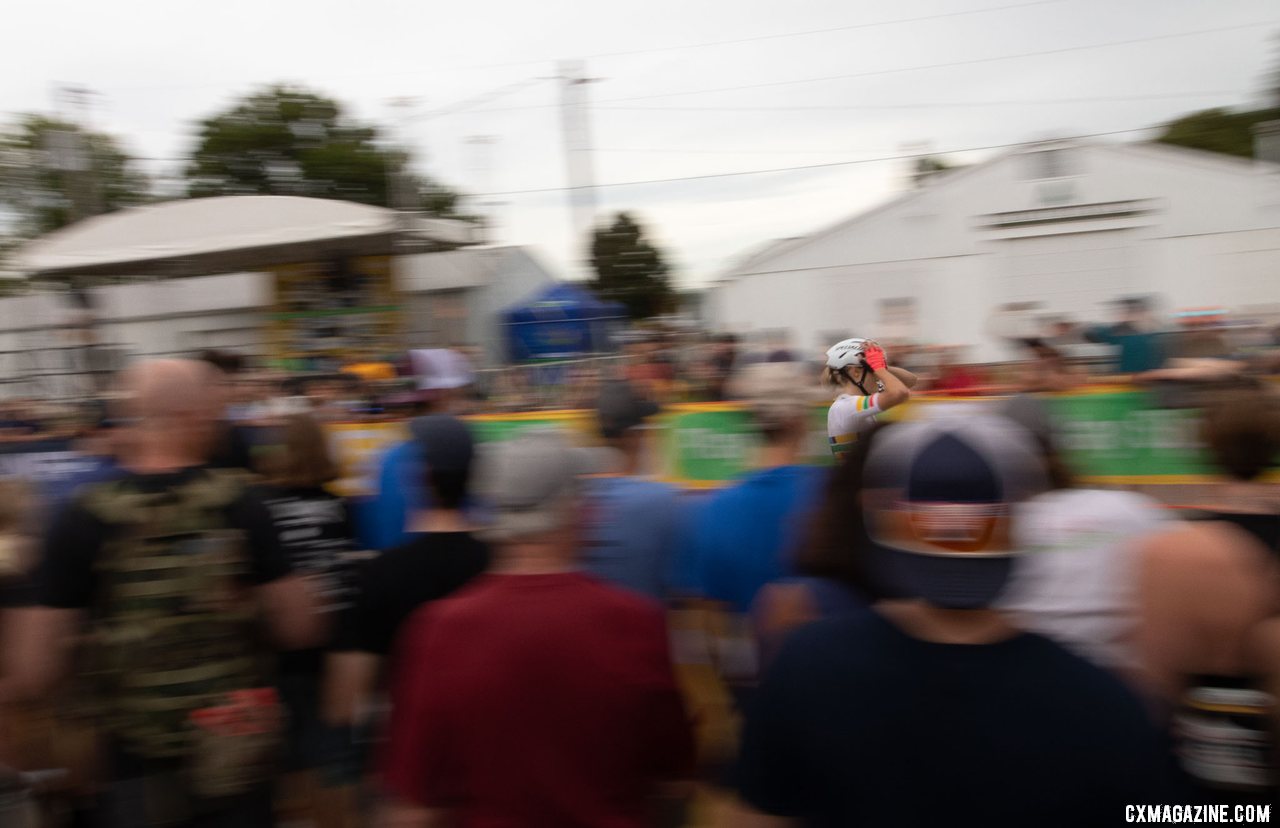
Maghalie Rochette won her first-career World Cup at Jingle Cross in September 2019, but her season will likely have a later start this year. 2019 Jingle Cross World Cup. Elite Women. © A. Yee / Cyclocross Magazine
As a Canadian, Rochette is not “travel-banned” from Europe like those of us south of the border. (Ironically, Canadians are currently banned from traveling into the United States.) Nevertheless, Canadians share the same challenges as U.S. riders in terms of being limited to 90 days in the Schengen Area. North Americans are allowed 90 days within a six-month period without a visa. In the absence of a highly paid contract with a European team (a European employer), visas are difficult and costly to obtain. Accordingly, Rochette is aware that she needs to manage the duration of her stay: “I know they are calling for events earlier than November in Europe, but I won’t be able to go super early because then I won’t be able to stay because of the visa. We have to be mindful of that. You get more racing if you go over later.”
In 2019–2020, Rochette took several trips back and forth between Europe and Tucson rather than basing herself in Europe. Due to the potential for quarantine and the risks of extended travel, Rochette expects she won’t be able to travel back and forth this coming season. However, Rochette’s not booking tickets to Europe just yet. “We don’t want to book anything too early because who knows what will happen. I think road [racing] will start and then depending on how that goes, it will probably decide what will happen with the rest of us,” she said.
Stay tuned for Part II of How the Cyclocross Pros Train with Maghalie Rochette and Coach Corey Coogan Cisek.





